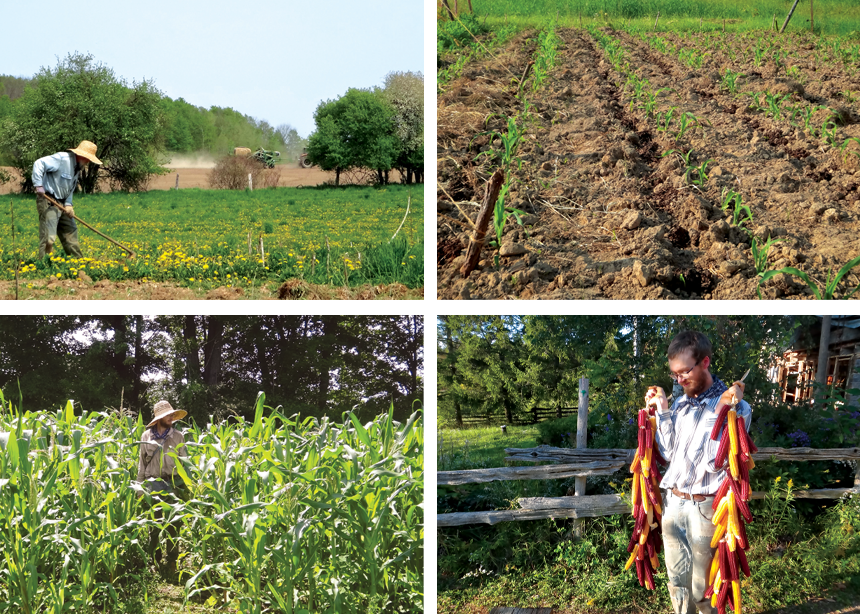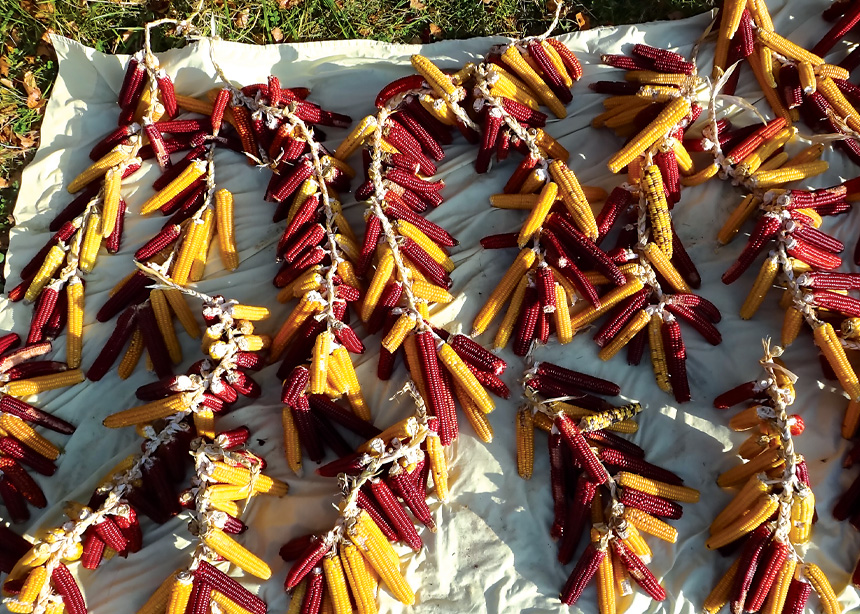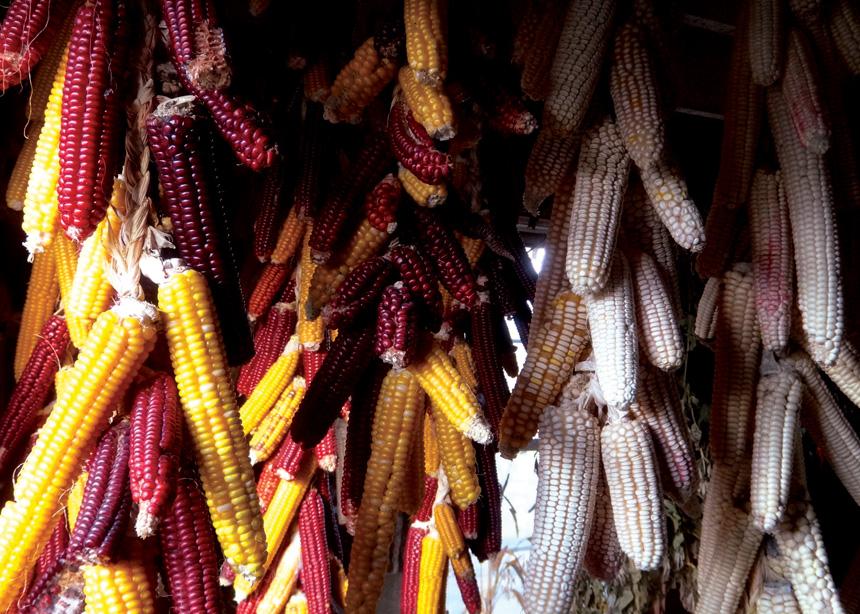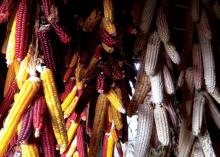By avocation, I am an historian with a strong interest in global geopolitics, so it feels odd to be a subsistence farmer. I spend much of my time just meeting my daily needs, while hearing about wars in Ukraine, Gaza and elsewhere.
Does my life ignore others’ pain? Could I do more?
I constantly seek to discern whether my life and work is a faithful response to suffering in those places.
As I see it, my subsistence life is a crucial response to war. A foundation of my analysis is an awareness that Gaza and Ukraine are only two of many crises. People in Ethiopia, Nigeria and Myanmar, among other places, are also suffering greatly. Our response to war must include them too.
We need war
Wars are not usually due to a single cause. Any large-scale conflict has many people approaching it from many perspectives, with many different stories of what drove them to that point. But one thread that I see running through the conflicts listed above is a desire for material security. Humans want to make sure we will have enough (and more than enough), and that no one will wrest our stuff from us.
I don’t think desiring security is wrong. The problem is that we need to balance meeting our legitimate needs with keeping them small enough to remain within the physical limits of our planet. When we use non-renewable resources to meet our needs, or when we use renewable resources faster than they renew themselves, they eventually run out.
Then, we either have to do without (a rather unpalatable proposition for essentials like food, water, shelter and fuel), or get resources somewhere else. If others already claim those resources, we need to take the resources away from them. We call this colonialism. If they resist, we call what happens next war.
Pacifism places boundaries on how we live. We halt the pattern of colonialism and war by limiting both the type and the quantity of resources we use.
We can use only renewable resources, and only at a rate less than their rate of recharge. There can be some exceptions for easily recyclable and abundant materials such as iron and silica (for glass), but relying too heavily on exceptions is risky.
The place of maize
Corn, also known as maize, offers a powerful case study in colonialism and pacifism. Corn has shaped our society tremendously. Domesticated in Central America 8,000-9,000 years ago, it reached my region of Southern Ontario somewhere between 0 and 1,000 AD. Everywhere it went, it changed cultures dramatically.
Two characteristics were key to its effect: big seeds that could be planted with simple tools immediately after forest had been cleared, and the ability to produce more carbohydrates per hectare than any crop before it on this continent. This allowed for higher population densities and complex societies.
When Europeans arrived on this continent, they appreciated corn’s uniqueness. They promptly adopted it and carried it to southern Europe and Africa, where it became a staple.
But the colonists’ iron tools allowed them to clear far more land far faster than the Indigenous peoples had. Private land ownership prevented shifting cultivation. An expanding population and the option to sell excess produce encouraged them to grow more and more corn, year after year, on the same fields. This pattern of rising resource use without recharge for the land was one factor which drove them to displace Indigenous people across the continent.
Eventually, colonists covered the whole continent. Eventually, we also figured out how to bring in replacement nutrients to fertilize the land and keep it productive. Fossil fuels were critical in this process.
This is a terribly brief and simplified summary of our continent’s history with corn, but there is truth in it. As I bike past huge fields of perfectly uniform, genetically-modified hybrid corn on my way to church, I recognize them as the logical development of how we have historically related to corn, the land and our fellow human beings.
But our relationship did not, and does not, have to develop this way. An alternative approach involves identifying limits and choosing to abide within them. In our time, and in our excessively wealthy society, this will require nearly all of us in Canada to decrease our consumption.
Paradoxically, one way our household seeks to do that is by growing corn.
Maize on our place

Our corn-growing is not conventional in our time and place. We do all the work by hand: cultivation, planting, fertilizing with our humanure, harvesting, storage (braided and hung in our house), shelling, and processing it into our meals. Usually it ends up as polenta, various cornbready things or hominy.
Corn makes up about 1/5 of the carbohydrates in our diet. We expect to eventually double that.
We grow open-pollinated flint, flour and dent corns and save seed for them all. It is a lot of work, but it is also wonderful to work with corn. It is a beautiful plant that turns into delicious dishes.
How, then, does our little corn patch form part of our response to war?
As a person of relative wealth on this Earth, I have a responsibility to diminish my use of resources. Growing our own corn helps us reduce the energy and technology required to feed us. If we weren’t doing this, our food would require fossil fuels in every step mentioned above.
Growing corn our way takes more time and thus keeps us tied to this place through the seasons, naturally reducing leisure activities and travel which would use more fossil fuel or electricity.
As I see it, if I am to speak against what Israel is doing in Gaza, or what Russia is doing in Ukraine, or what Western capitalism is doing in countless places, I must first work at removing the metaphorical log from my own eye. If I don’t, my critique is undermined by my diet, which tacitly states that I intend to continue depending on colonialism and war to feed me.
This work is part of my faith. It is part of my effort to try to live up to my words, “Thy kingdom come; thy will be done, on Earth as it is in heaven.”
I try to say that humbly. I know that by my own strength and willpower I can never come near it, but I hope that by God’s grace I might get closer.

In explaining my response to war, I do not want to criticize too harshly those who choose to get in the way of war more directly, by protesting here at home or by actively entering conflict zones through organizations like Community Peacemaker Teams.
I appreciate and honour the desperate need to respond to acute suffering with immediacy. But I see that work as primarily treating symptoms. I think we also need to treat the underlying disease if we ever want to hope to hold the evil of war in remission for the long term. The two approaches need to be held in balance, and the work of subsistence does not have nearly enough adherents yet.
As a community of faith that points to an alternative kingdom of shalom, we need to be able to say “Stop!” and simultaneously say, “There is another way. Look here. Plant these seeds. Root your living in the soil. Our survival does not have to depend on the destruction of others.”
Theo Wiederkehr is part of a household of subsistence farmers near Mildmay, Ontario. He is breeding a new variety/ grex of white dent corn. Theo can be reached at rumithan@gmail.com.



Add new comment
Canadian Mennonite invites comments and encourages constructive discussion about our content. Actual full names (first and last) are required. Comments are moderated and may be edited. They will not appear online until approved and will be posted during business hours. Some comments may be reproduced in print.